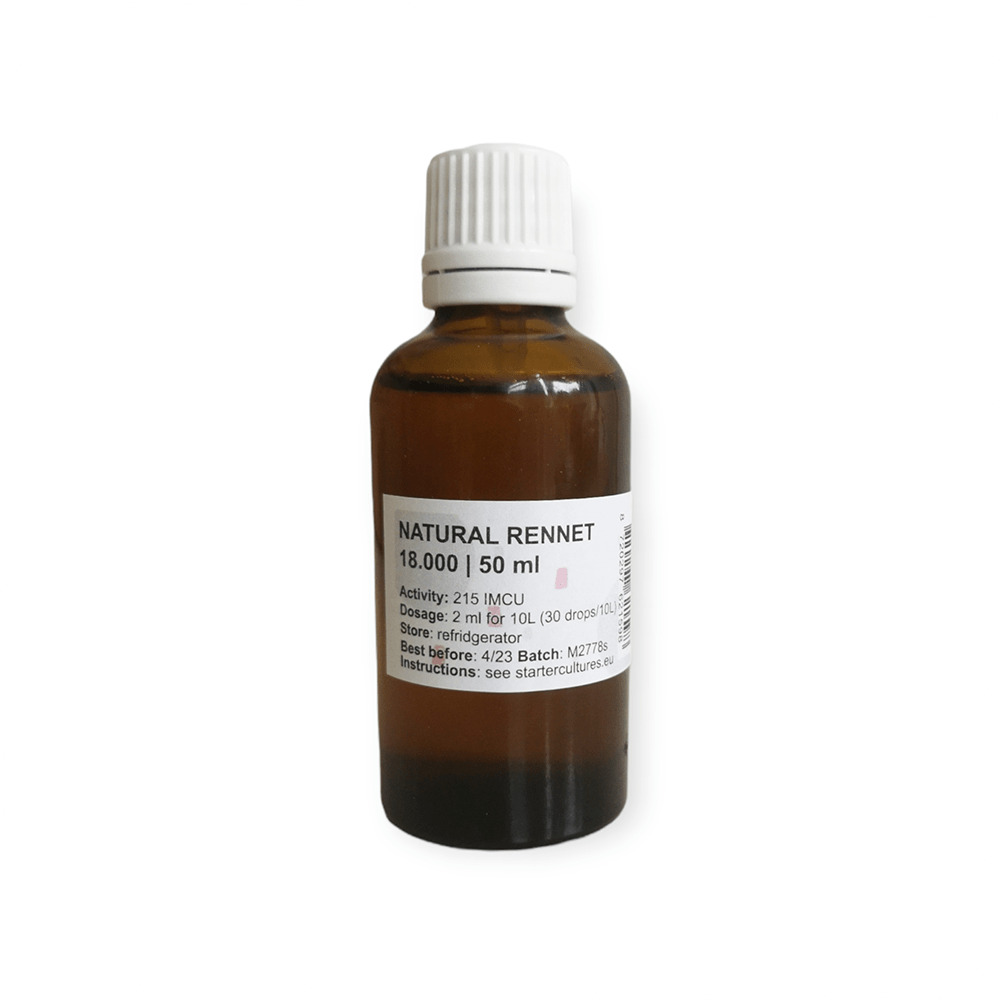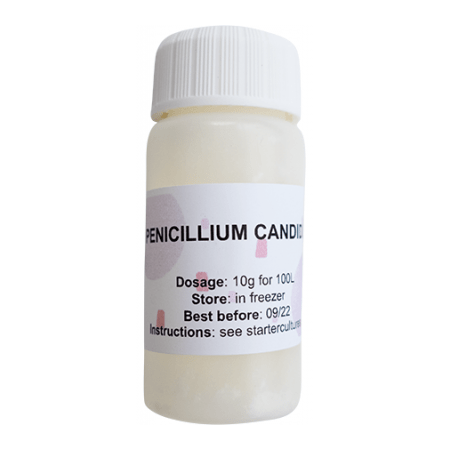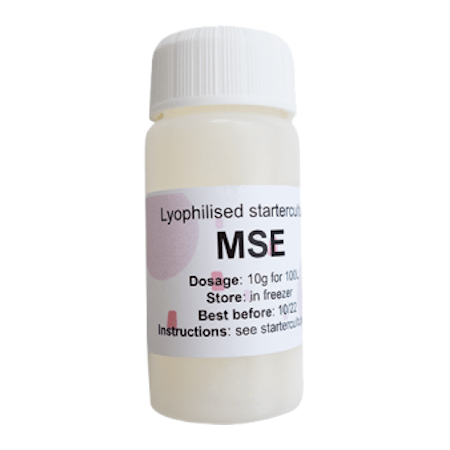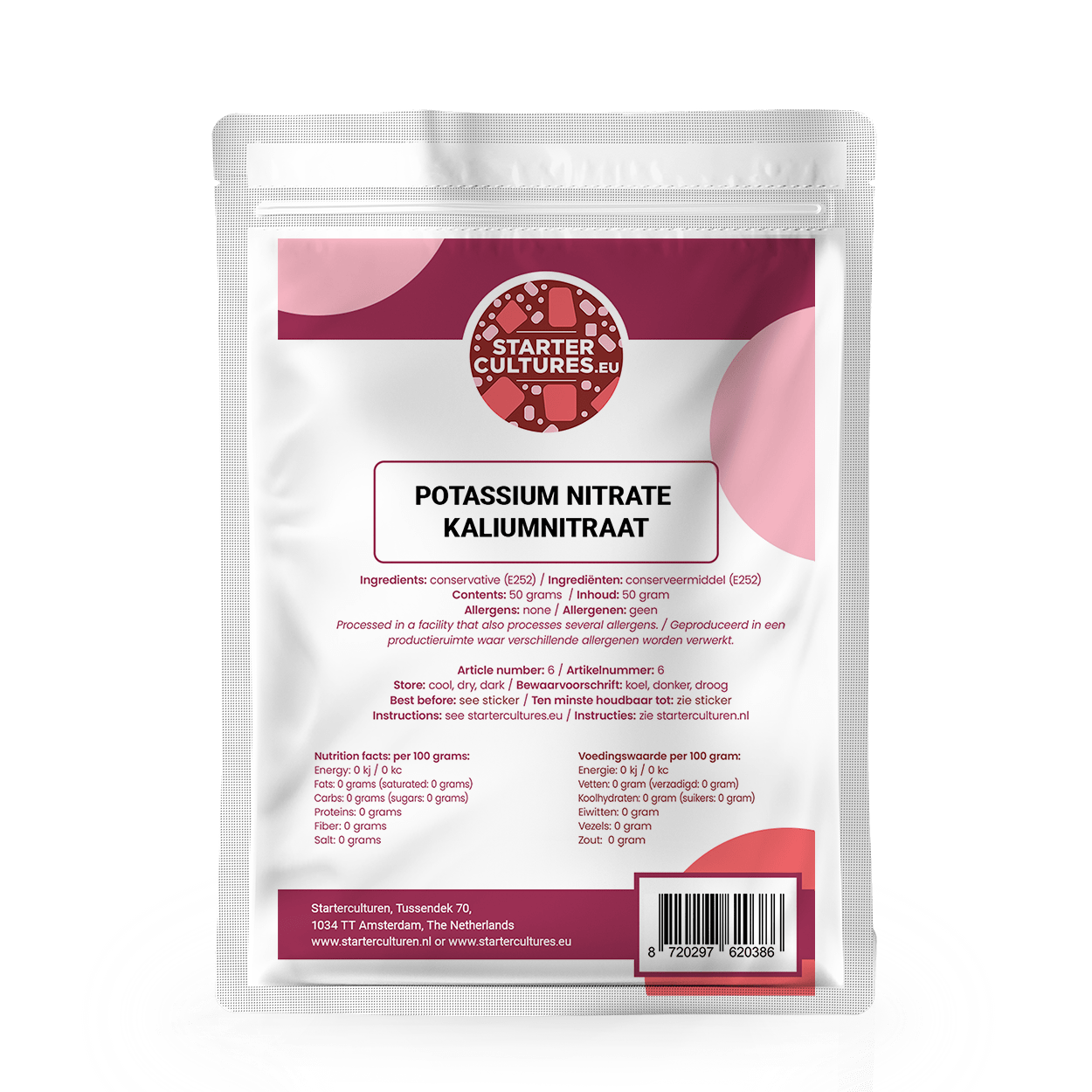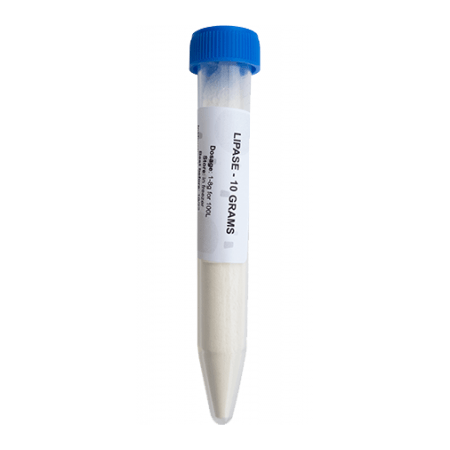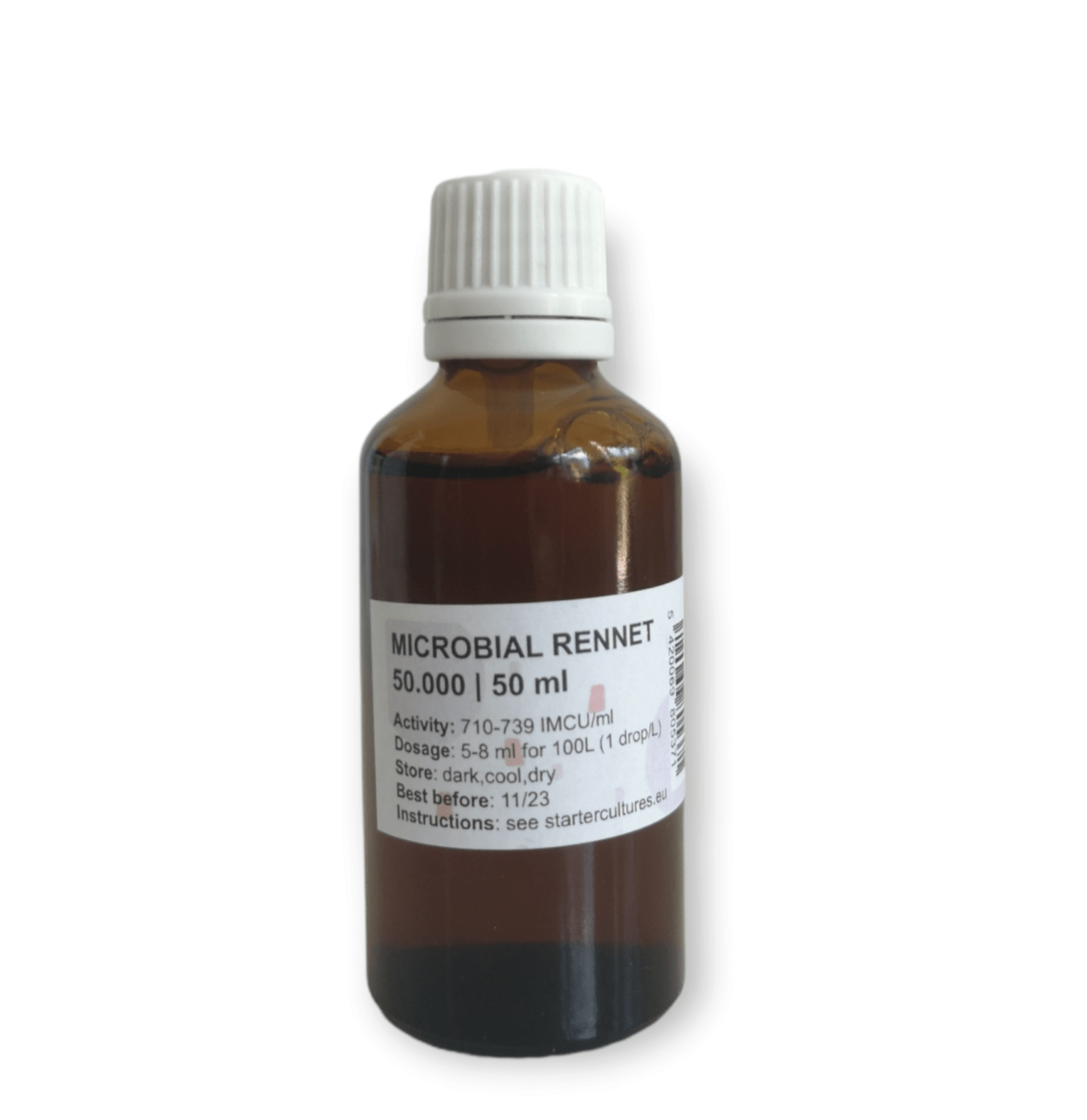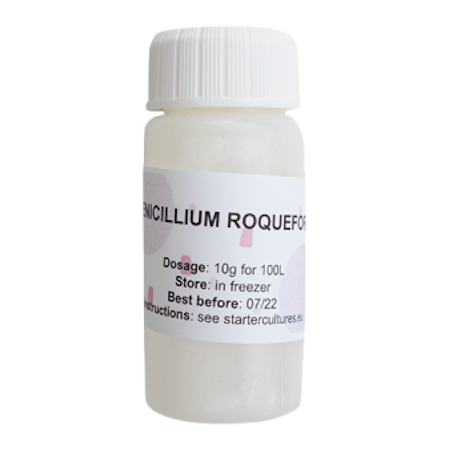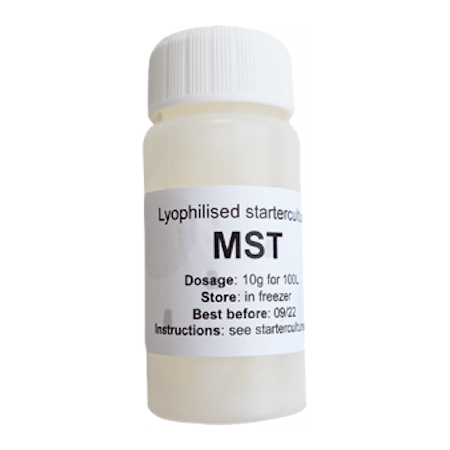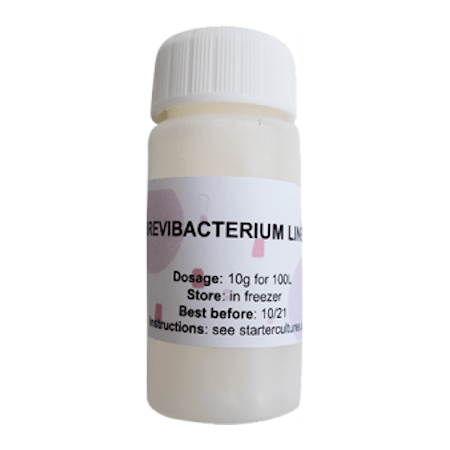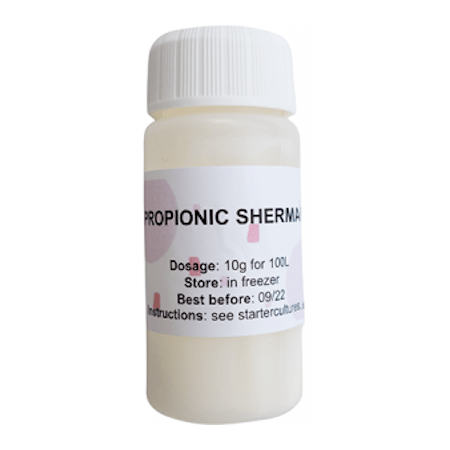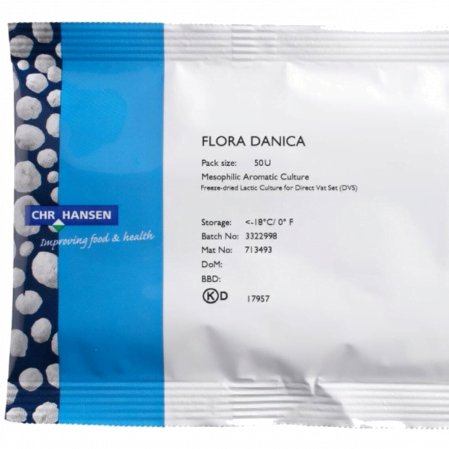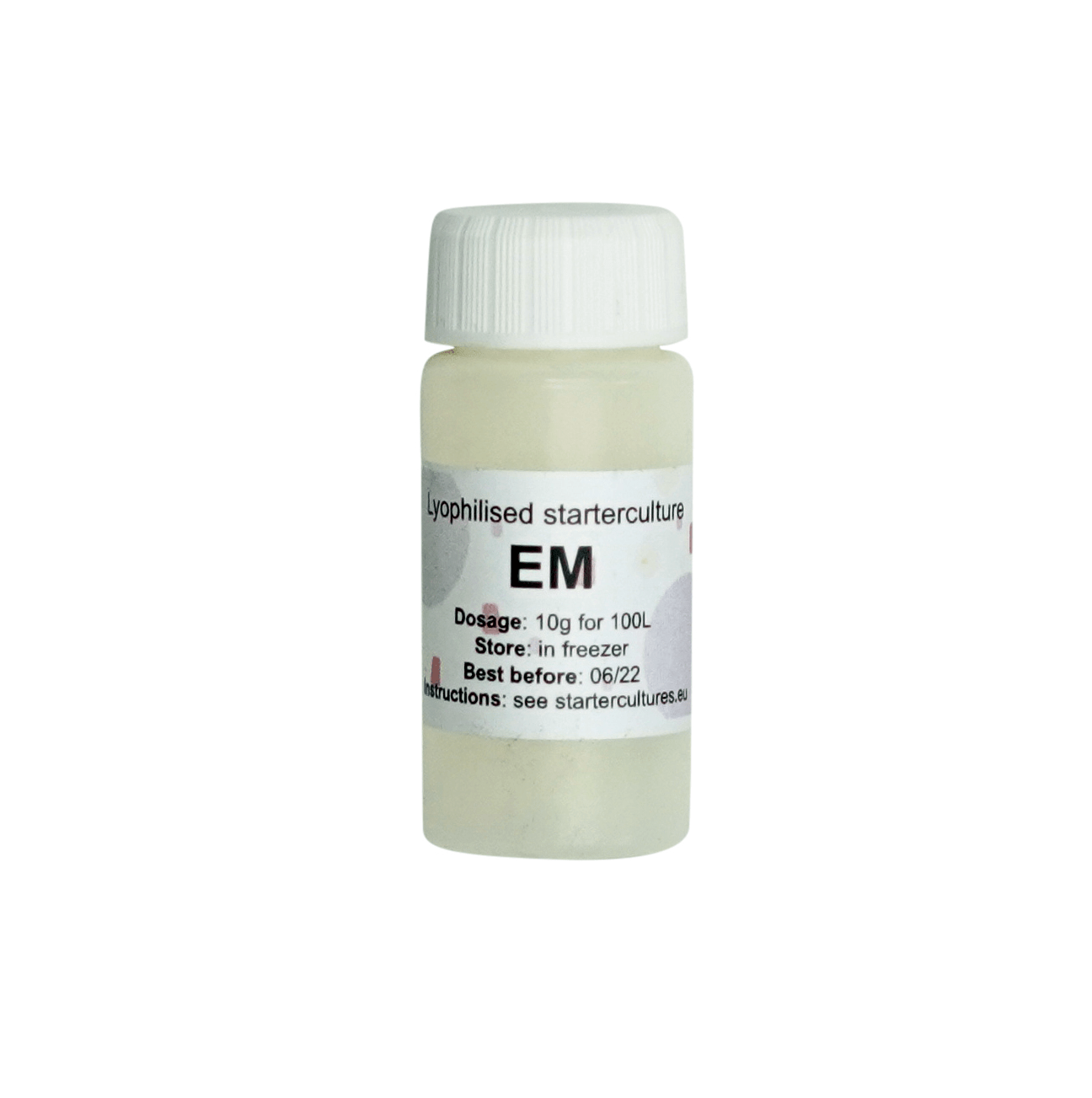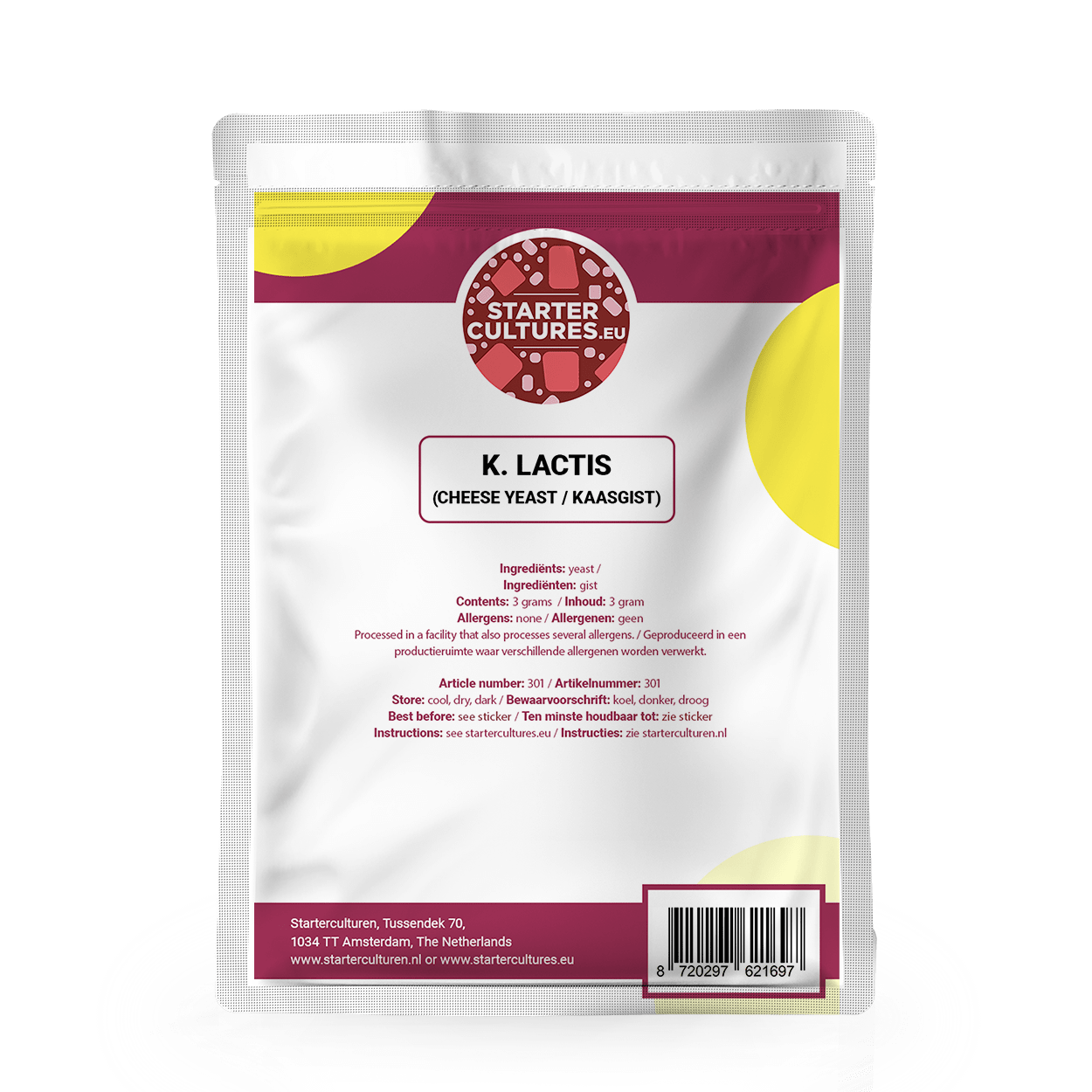Starters
€12,99Original price was: €12,99.€5,99Current price is: €5,99.In stock
Rated 4.87 out of 5 based on 45 customer ratings(45 customer reviews)Although there is nothing wrong with microbial rennet, nothing beats real animal rennet in cheese making. New, now in 50 ml bottle. Twice the size. | SALE (best before 1-26)
€9,99
In stock
Rated 4.87 out of 5 based on 38 customer ratings(38 customer reviews)Calcium chloride restores the calcium balance of milk. Without calcium chloride, you cannot make cheese from pasteurised milk.
€12,99
In stock
Rated 4.75 out of 5 based on 28 customer ratings(28 customer reviews)Penicillium candidum (camemberti) is a well know white mold characteristic of cheeses such as camembert and brie. This culture is enough for 100 liters of milk.
€12,99
In stock
Rated 5.00 out of 5 based on 23 customer ratings(23 customer reviews)This mesophilic cheese starter culture is particularly suited for pressed semi hard and hard cow and goat cheeses such as Gouda and Cheddar. It’s also great for making your own butter. It can also be used for soft cheeses. It’s also very suitable for blue cheeses as it produces a little bit of gas that allows the mold to grow inside the cheese.
€9,99
In stock
Rated 4.88 out of 5 based on 25 customer ratings(25 customer reviews)Saltpeter / potassium nitrate is used as a preservative to prevent color loss in meat. It is converted into nitrite inside of your sausage. Can be used as a substitute for cure #2.
€8,99
In stock
Rated 4.83 out of 5 based on 18 customer ratings(18 customer reviews)Lipase is used in home cheese making of long and medium-ripening cheeses, where a more aromatic “spicy” flavor is required, like Italian cheeses, as well as some feta and blue cheeses.
€12,99
In stock
Rated 4.92 out of 5 based on 13 customer ratings(13 customer reviews)No cheese without rennet. Rennet is a binding agent that causes milk to curdle. This very potent rennet is microbial, so you can make cheese that -unlike most cheeses- is truely vegetarian.
€12,99
In stock
Rated 4.84 out of 5 based on 19 customer ratings(19 customer reviews)Blue cheese mold – Penicillium roqueforti is a blue mold typical of cheeses such as Roquefort, Danish Blue en Stilton and gorgonzola. This culture is enough for about 100L of milk.
€12,99
In stock
Rated 4.95 out of 5 based on 20 customer ratings(20 customer reviews)This allround thermophilic cheese starter culture is particularly suited for semi hard and hard cow and goat cheeses: Parmesan, Provolone, Romano, Swiss, Gruyere, and other Italian style cheeses, which require higher temperature ranges. It can also be used for Mozarella or pasta-filata.
€15,99
In stock
Rated 4.80 out of 5 based on 10 customer ratings(10 customer reviews)A starter culture consists of various lactic acid bacteria that convert milk sugars (lactose) into lactic acid. So your milk becomes more acidic. They thus influence the taste, smell, texture and shelf life of your cheese.
€12,99
In stock
Rated 4.69 out of 5 based on 16 customer ratings(16 customer reviews)White cheese mold – Geotrichum candidum is a white or grey mold that is often used as a supporting, but important, mold in both white mold cheeses and smear ripened cheesessuch as Camembert, Saint-Nectaire, Reblochon and others.
€12,99
In stock
Rated 4.87 out of 5 based on 15 customer ratings(15 customer reviews)This soft cheese mesophilic- thermophilic starter culture is particularly suited mold ripened cheese such as Camembert, Brie, Roquefort, Gorgonzola and others.
€12,99
In stock
Rated 4.78 out of 5 based on 9 customer ratings(9 customer reviews)Brevibacterium linens is characteristic of smear ripened cheeses such as muenster and epoisses.
€12,99
In stock
Rated 4.78 out of 5 based on 9 customer ratings(9 customer reviews)Propionibacterium shermanii is gas forming cheese bacterium. This culture is enough for 100 liters of milk. It produces a large amount of CO2 and is therefore responsible for large holes, but also for a nutty and sweet flavor such as in Emmenthaler cheeses and Leerdammer and Maasdam cheese.
€16,99
In stock
Rated 5.00 out of 5 based on 8 customer ratings(8 customer reviews)Mesophilic freeze-dried culture, adds a lot of aroma to cheese as well as Co2. Suitable for making many hard pressed and soft cheeses e.g. Gouda, Leerdam, Edam, Brie, Camembert and blue cheeses.
€12,99
In stock
Rated 4.56 out of 5 based on 9 customer ratings(9 customer reviews)Bulgarian Siren is a type of hard white cheese. It is very similar to feta cheese, but has a sharper taste and the most delicious aroma that you can imagine thanks to the presence of lactobacillus bulgaricus lactic acid bacteria.
€11,99
In stock
Rated 4.50 out of 5 based on 4 customer ratings(4 customer reviews)Citric acid has many applications. It is widely used in the cheese production, among other things to easily make mozzarella yourself and in the preparation of vegan cheeses.
€12,99
In stock
Rated 5.00 out of 5 based on 4 customer ratings(4 customer reviews)This Alpine cheese starter culture is suited for semi hard and hard cheeses. These Swiss-type cheeses are (semi)hard cheeses with a distinct character, like Emmental, Gruyère and Appenzeller, as well as the French Beaufort and Comté (from the Jura Mountains, near the Alps). Leerdammer or Maasdam cheese are Dutch versions of Alphine cheeses, and combined with our Propionibacterium shermanii you get the big holes in the cheeses.
€9,99
Out of stock
Rated 5.00 out of 5 based on 4 customer ratings(4 customer reviews)Ash is carbon, made from charred vegetable matter used for protection of cheese. Often used in goat cheeses. Can also be used for vegan cheese.
€12,99
Only 2 left in stock
Rated 5.00 out of 5 based on 3 customer ratings(3 customer reviews)This Kluyveromyces lactis yeast cheese culture produces many volatile aromatic compounds generating fruity notes and reducing the bitterness of cheeses. Its early implantation on the surface of cheeses prevents fungal contamination.
€11,99
In stock
Make your own cream cheese at home with this cream cheese starter culture. Making cream cheese is simple; in fact, cultured cream cheese is one of the easiest cheeses to make! All you need is a pack of this starter and cream.

